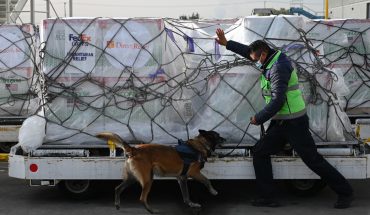Children and young people represent almost 25% of the country’s population and although today they are part of the political, academic and expert discourses on children, they continue to be a forgotten group at electoral times, not only because they do not have the right to vote, but also because they do not have spaces for their own voices to be heard, always being “represented” by adults.
In its article 12, the Convention on the Rights of the Child recognizes that persons under the age of 18 “are individuals with the right to full physical, mental and social development, and with the right to freely express their opinions”. It also provides that the signatory States shall guarantee them the right to express their opinion freely and that they shall take them into account in all matters affecting them.
That mandate, signed and ratified by Chile in 1990, obliges us to act to guarantee these rights, especially in the face of the invisibility of children and adolescents, both in the diagnoses and in the proposals for solutions that are given to the problems they face: the poorest among the poor (CASEN 2017), low electoral participation (SERVEL 2017), victims of violence (SubPRevDel, 2017), SENAME crisis – Better Childhood (2006 to date), among other data, betray us as a society where they are not them, nor their needs, the priority.
There is consensus in the world that, to reverse this trend, it is key to educate from an early age about the importance of their rights, democracy and their values. By educating children to participate and express their opinion, it contributes to the formation of more democratic societies, based on dialogue and respect.
The family and the school are the main spaces to encourage participation, especially by generating instances of dialogue and conversation that allow creating interest in children and adolescents in the exercise of their rights, promoting their civic spirit and responsible information.
Since 2016 World Vision has carried out the campaign “L@s Niñ@s also vote”, where the main concerns of l@s niñ@s have been linked, among others, to:
Share and be cared for by their significant adults and that they understand that they are niñ@s and that they can make mistakes, that they are protected from violence, that the environment is taken care of and that there are actions against climate change, that women, the elderly, indigenous peoples and sexual dissidents are respected and protected from violence, that they be allowed to vote and have mechanisms and spaces for participation, that their rights are respected and that they are protected from different violence (domestic, social and cyber).
The data reinforce the need to open new spaces for participation for children, adolescents and young people, considering their interests and their forms of communication and coexistence, understanding that they are also citizens with rights, needs and proposals. In Chile and the world there are different examples of child participation. For example, kindergartens that hold presidential elections, elections of Student Centers, the advisory councils of the Offices of Protection of Rights, adolescent activism groups with a focus on feminism or the environment, artistic and sports collectives, among others.
For all the above, this September 4 we will promote the symbolic participation of children and adolescents in the plebiscite to exit the constituent process, through the online platform “L@s Niñ@s also vote”, an instance that makes it possible that, in a virtuous intergenerational dialogue with their families and caregivers, l@s niñ@s represent themselves mism@s and have effective spaces of opinion on interests and relevant issues, becoming part of the public discourse.
We have much to do as a country in the full recognition of children and adolescents as subjects of rights, in the promotion of their effective and incident participation, that collects and listens to their own opinions and needs.
Follow us on
The content expressed in this opinion column is the sole responsibility of its author, and does not necessarily reflect the editorial line or position of El Mostrador.





